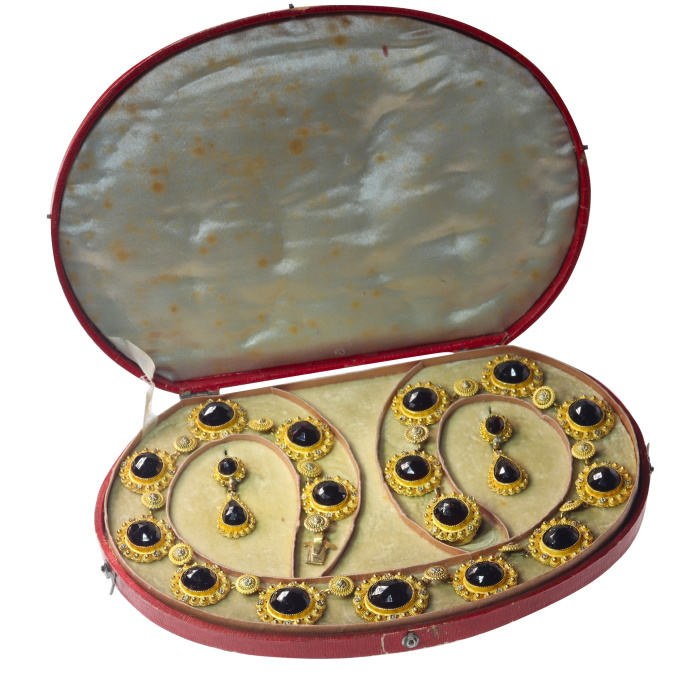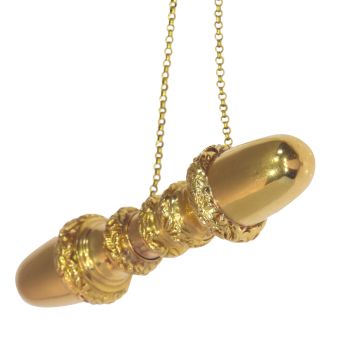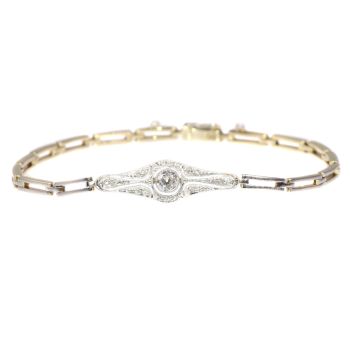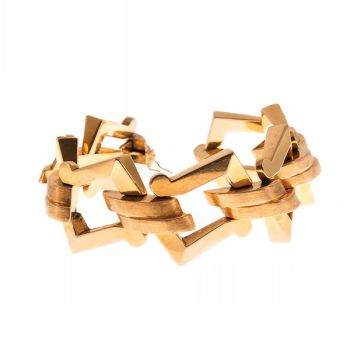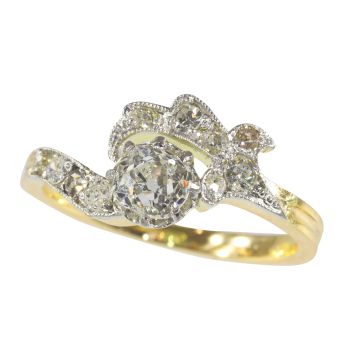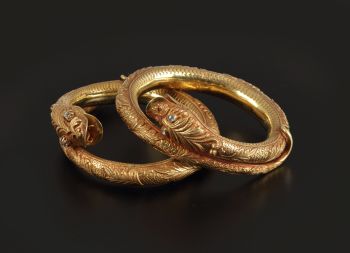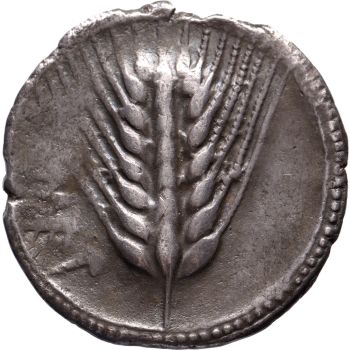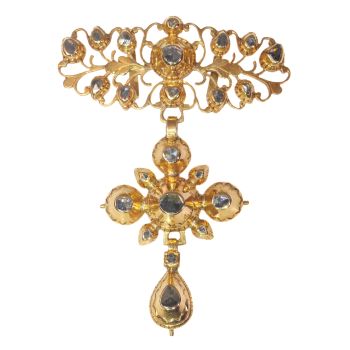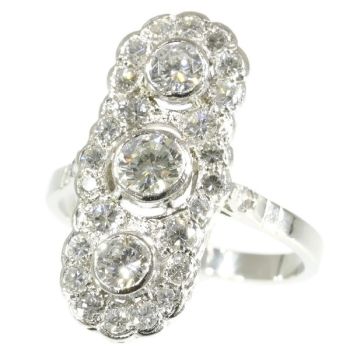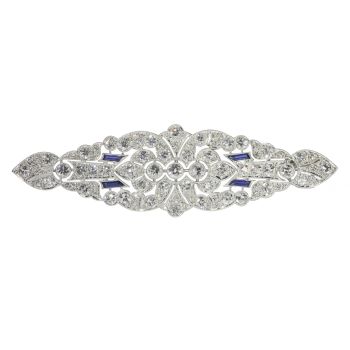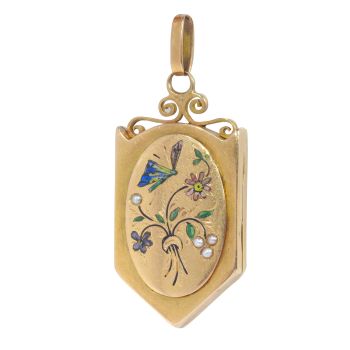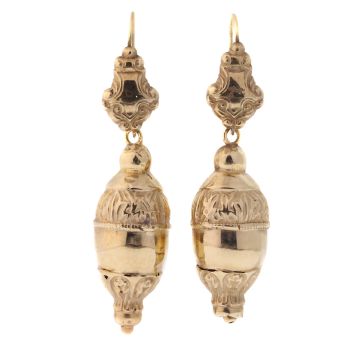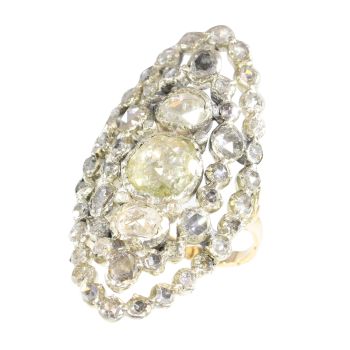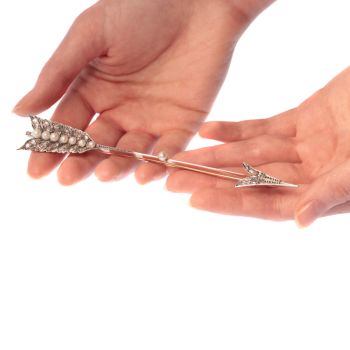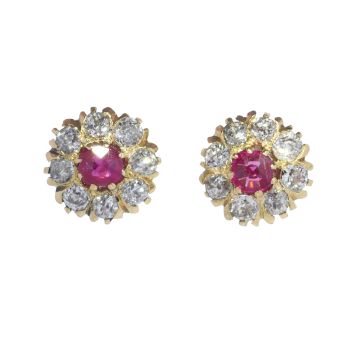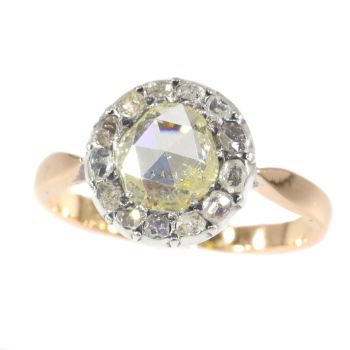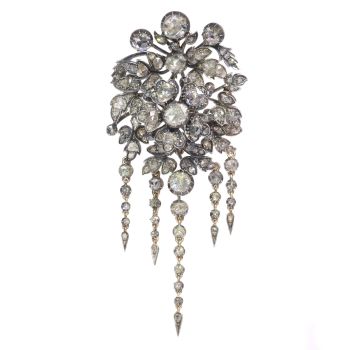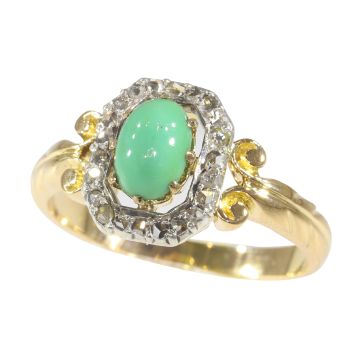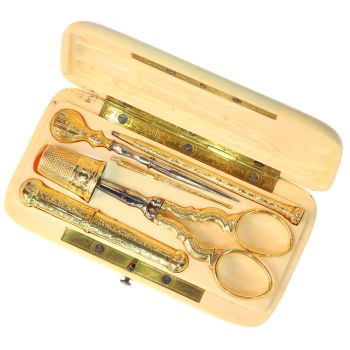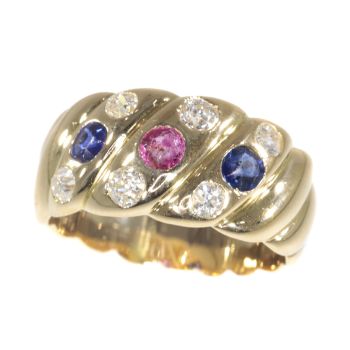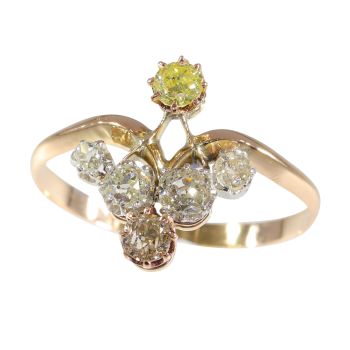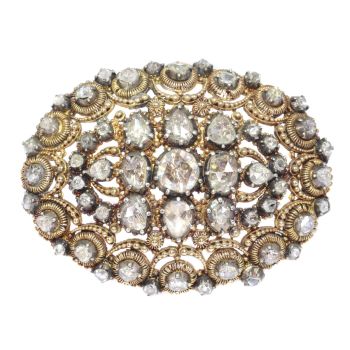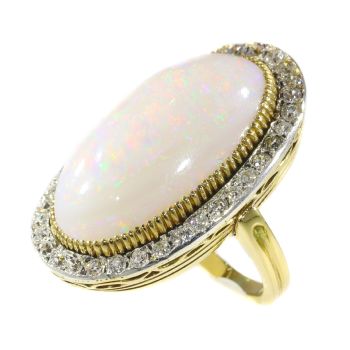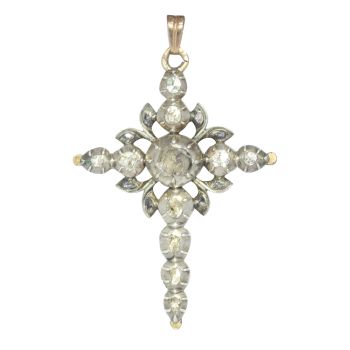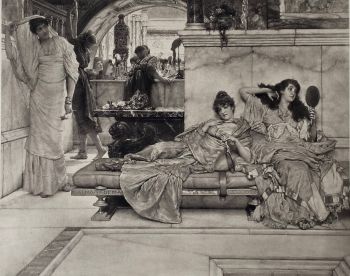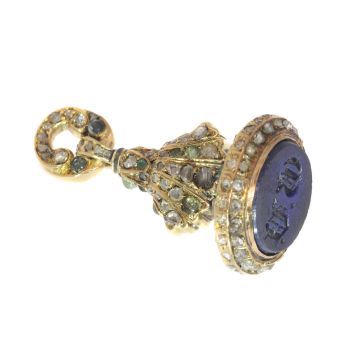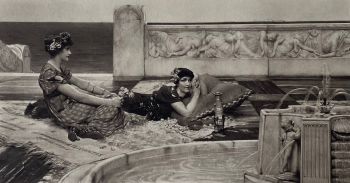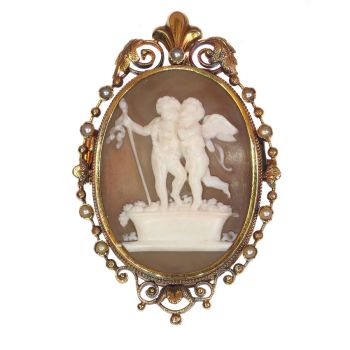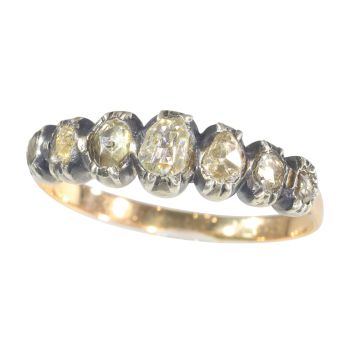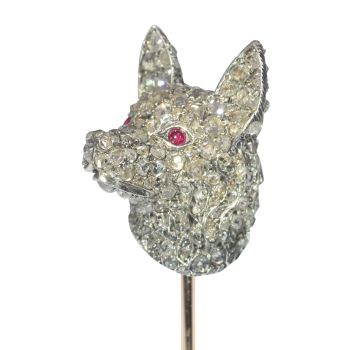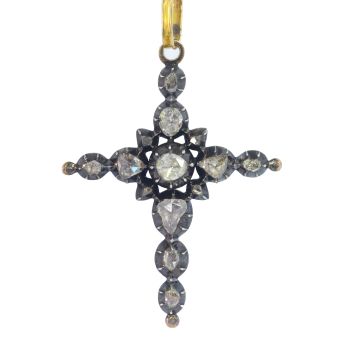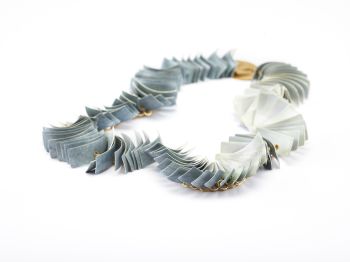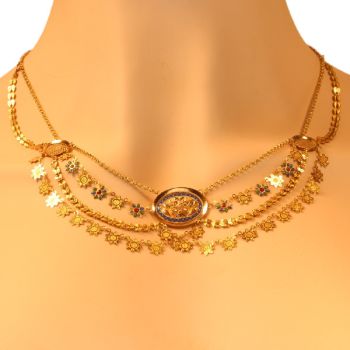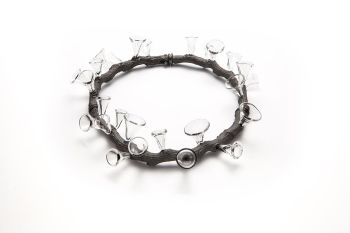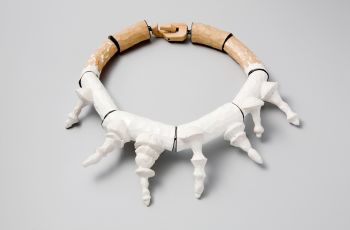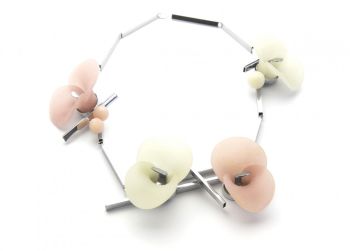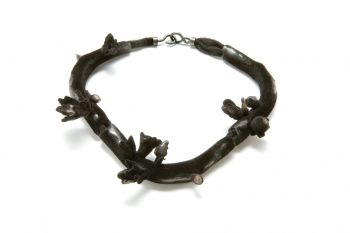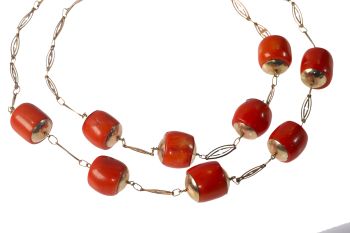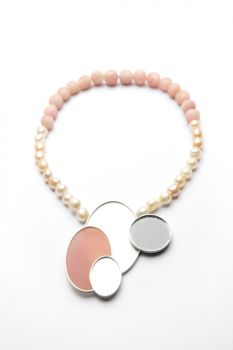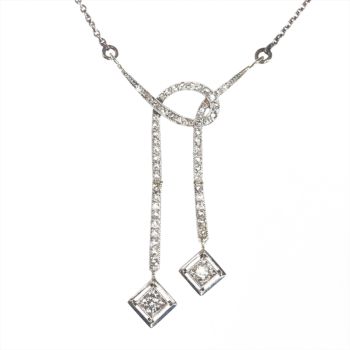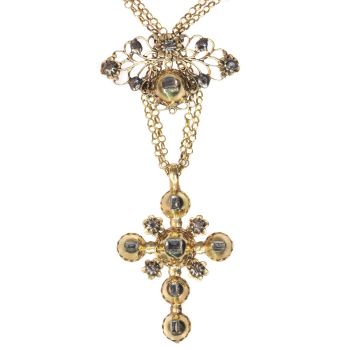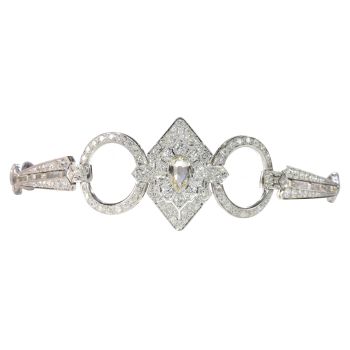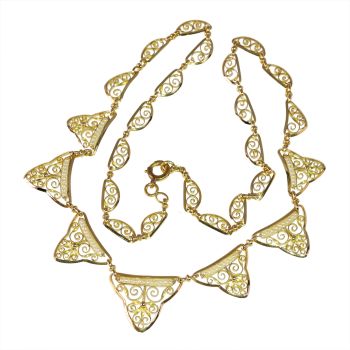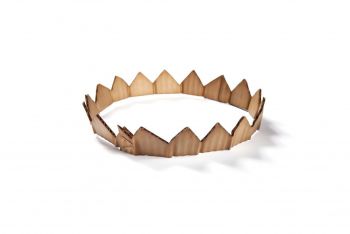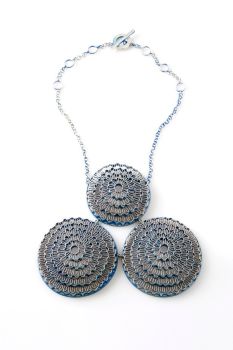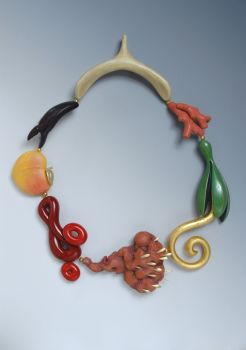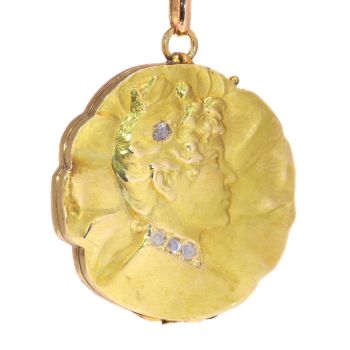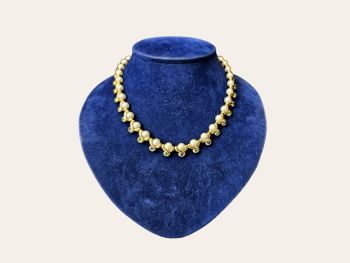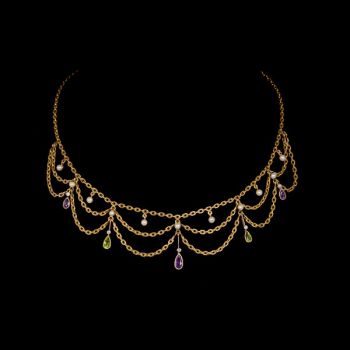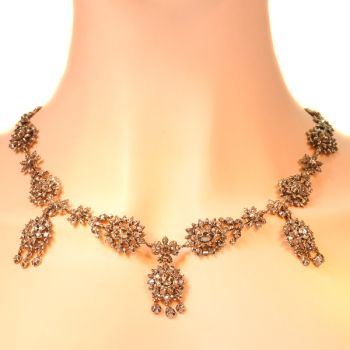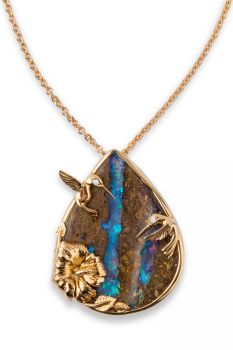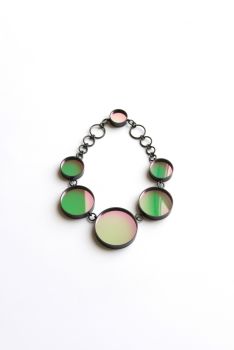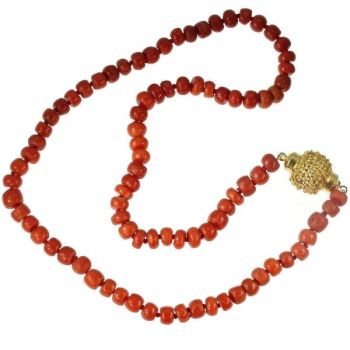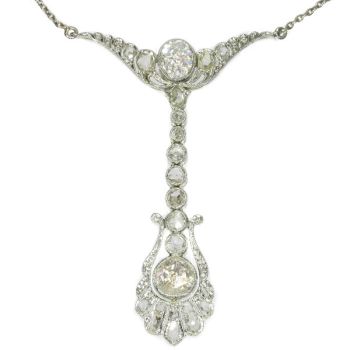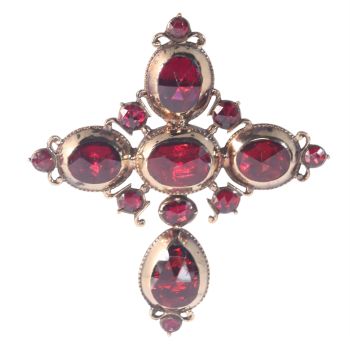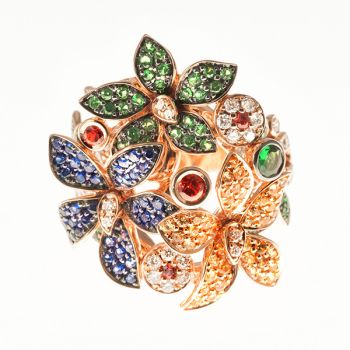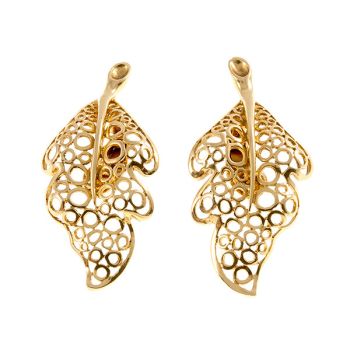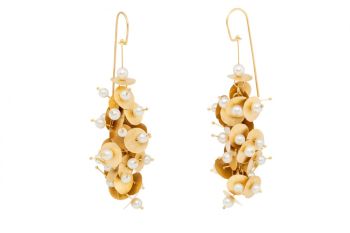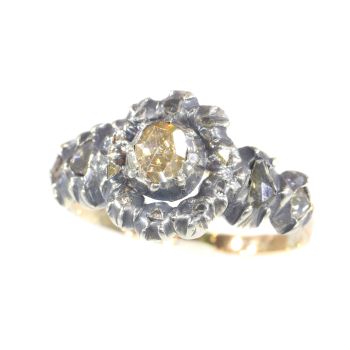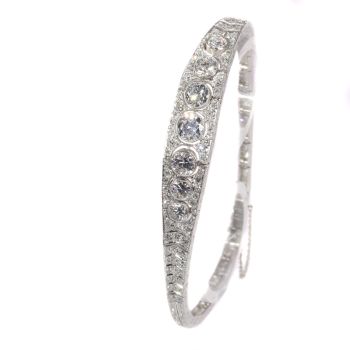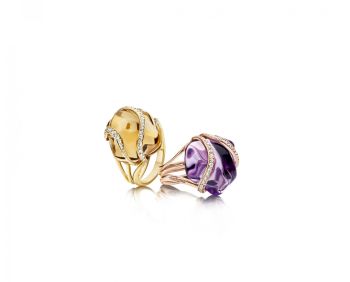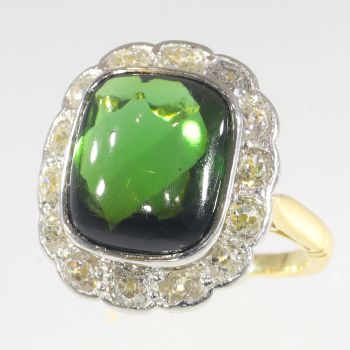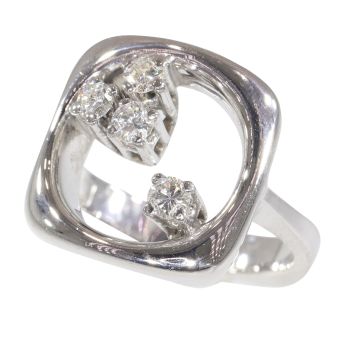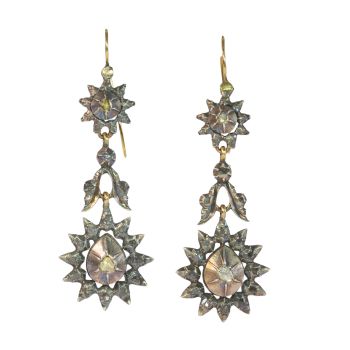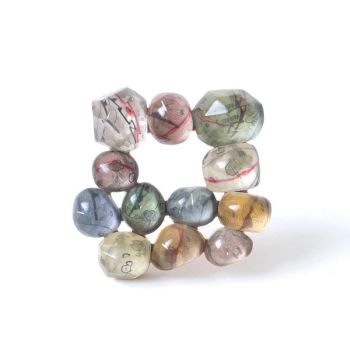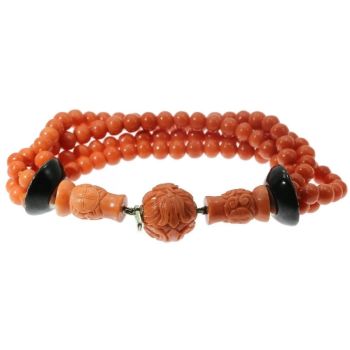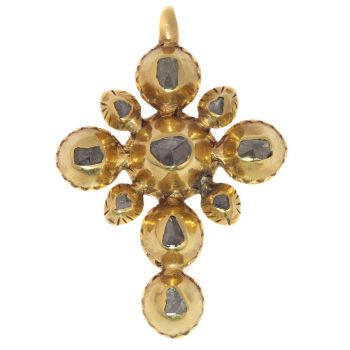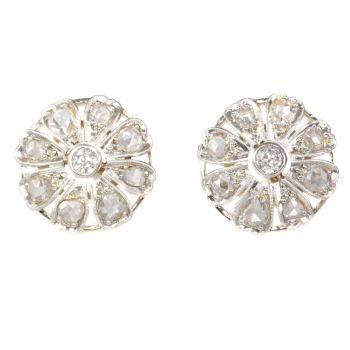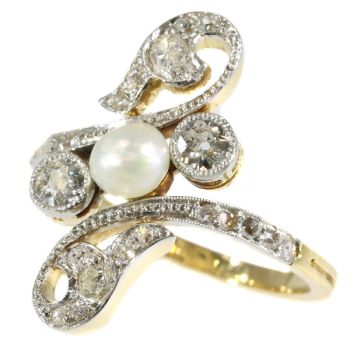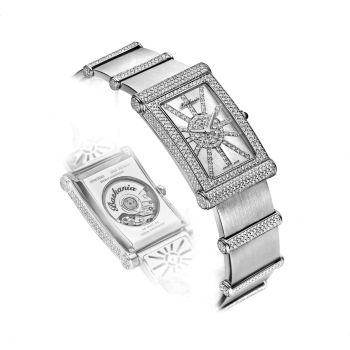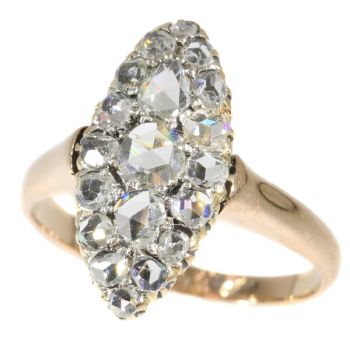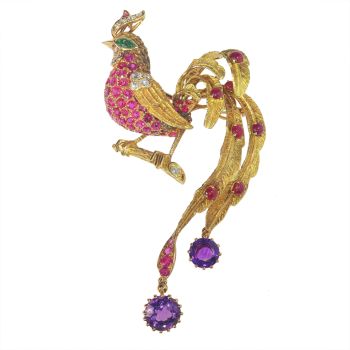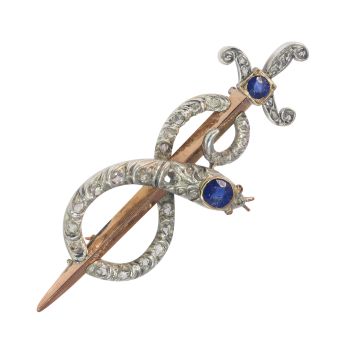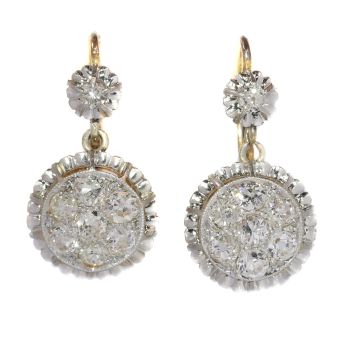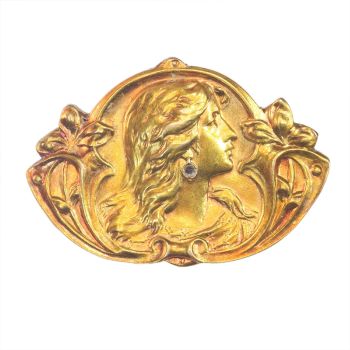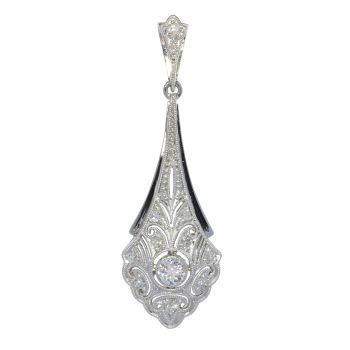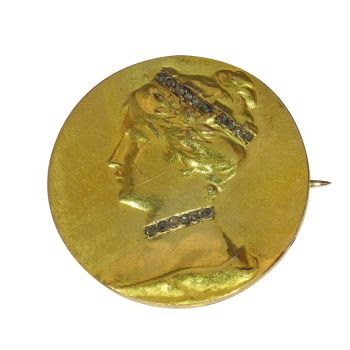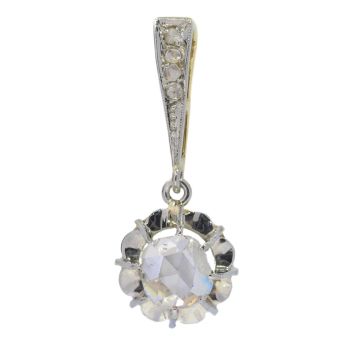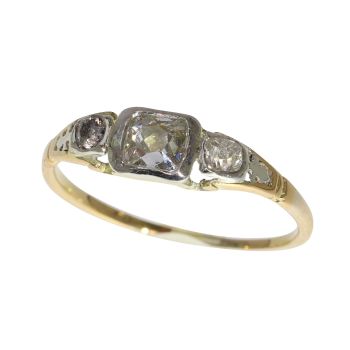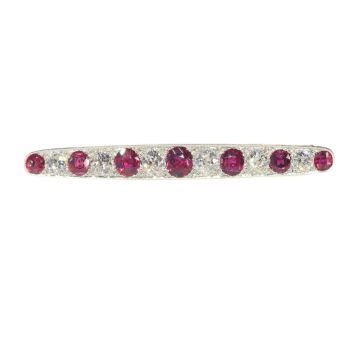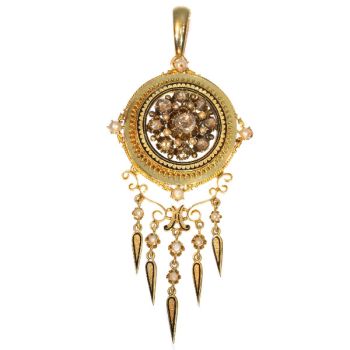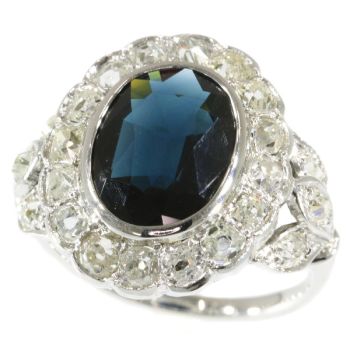Victorian gilded garnet parure matching necklace and earrings in original box 1860
Artista Sconosciuto
GranatoFiligranaOroPietra preziosa
€ 2.800
Adin Fine Antique Jewellery
- A proposito di opere d'arte
Antique jewelry object group
parure (matching set of jewellery)
Condition
good condition (some not directly obvious traces of old repairs)
more info on our condition scale
Country of origin
unknown
Style
Victorian - Victorian decorative arts refers to the style of decorative arts during the Victorian era. The Victorian era is known for its eclectic revival and interpretation of historic styles and the introduction of cross-cultural influences from themiddle east and Asia in furniture, fittings, and Interior decoration. Victorian design is widely viewed as having indulged in a regrettable excess of ornament. The Arts and Crafts movement, the aesthetic movement, Anglo-Japanese style, and Art Nouveaustyle have their beginnings in the late Victorian era.
See also: Victorian
more info on styles
Style specifics
The Romantic Victorian Period - Experts divide the reign of Queen Victoria, also called The Victorian era (1837 - 1901) in to three periods of about twenty years each; The Romantic Victorian Period (1837 - 1860), The Grand Victorian Period (1860 -1880), and the Late or Aesthetic Victorian Period (1880 - 1901).
We consider this to be of the Romantic Victorian Period. This period covers the coronation of Victoria as Queen of Great Britain and Ireland, and her marriage to King Albert and their love, their devotion to their marriage and to their country are thesources of inspiration for this period. The jewels of this period are made of intricate carvings, special techniques where the enamel is subtly worked. These techniques allowed to give the jewel a certain opulence with less precious metal needed. Asprecious metals were really rare at that time. Highly favored (semi-) precious stones in this period are amethyst, coral, garnets, seed pearls and turquoises. The connotation is obviously sentimental, symbolic and romantic with reminiscent Gotic and/orRenaissance patterns and an abundant use of motifs like anchors, birds, branches, crosses, hearts and snakes.
Period
ca. 1860
Events & facts of this era, poetry of this era, fashion of this era.
Material
Gilded base metal (touchstone tested)
more info on precious metals
Technique
Filigree (formerly written filigrann or filigrane) is a delicate kind of jewel work made with twisted threads usually of gold and silver or stitching of the same curving motifs. It often suggests lace and French from 1660 to the late 19th century. Itshould not be confused with ajoure jewellery work; while both have many open areas, filigree involves threads being soldered together to form an object and ajoure involves holes being punched, drilled, or cut through an existing piece of metal. (from: Wikipedia)
Precious stones
20 garnets
Birthstones
Garnet is the birthstone (or month stone) for January.
more info on birthstones
Hallmarks
No trace.
more info on hallmarks
Dimensions
length necklace 51,50 cm (20,28 inch), height earrings 4,00 cm (1,57 inch)
see picture with a ruler in millimeters and inches
Weight
85,10 gram (54,72 dwt)
Adin Reference Nº
22298-0344
Copyright photography
Adin, fine antique jewellery
Additional information
our latest acquisitions
jewelry glossary
wall of fame
visit us in Antwerp
subscribe to our mailinglist
- A proposito di opere artista
Può succedere che un artista o un creatore sia sconosciuto.
Alcune opere non sono determinate da chi sono state realizzate o sono state realizzate da (un gruppo di) artigiani. Esempi sono statue dell'antichità, mobili, specchi o firme non chiare o leggibili ma anche alcune opere non sono affatto firmate.
Inoltre puoi trovare la seguente descrizione:
•"Attribuito a …." A loro avviso probabilmente opera dell'artista, almeno in parte
•“Studio di ….” o “Officina di” A loro avviso un'opera eseguita nello studio o nella bottega dell'artista, eventualmente sotto la sua supervisione
•“Cerchio di…” A loro avviso un'opera del periodo dell'artista che mostra la sua influenza, strettamente legata all'artista ma non necessariamente al suo allievo
•"Stile di..." o "Seguace di..." A loro avviso un'opera eseguita nello stile dell'artista ma non necessariamente da un allievo; può essere contemporaneo o quasi contemporaneo
•“Modalità di…” A loro avviso un'opera nello stile dell'artista ma di epoca successiva
•"Dopo …." A loro avviso una copia (di qualsiasi data) di un'opera dell'artista
•“Firmato…”, “Datato…” o “Iscritto” A loro avviso l'opera è stata firmata/datata/inscritta dall'artista. L'aggiunta di un punto interrogativo indica un elemento di dubbio
•"Con firma....", "Con data...", "Con iscrizione..." o “Riporta firma/data/iscrizione” a loro avviso la firma/data/iscrizione è stata aggiunta da qualcuno diverso dall'artista
Sei interessato ad acquistare questa opera d'arte?
Artwork details
Related artworks
- 1 - 4 / 12
Artista Sconosciuto
Enchanting 1870s Vintage Fly Brooch: Victorian Elegance in Gold1870
€ 4.600Adin Fine Antique Jewellery
 A cura di
A cura diDanny Bree
1 - 4 / 24- 1 - 4 / 24
Artista Sconosciuto
Enchanting 1870s Vintage Fly Brooch: Victorian Elegance in Gold1870
€ 4.600Adin Fine Antique Jewellery
 A cura di
A cura diDanny Bree
1 - 4 / 24- 1 - 4 / 12

